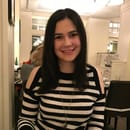To help undecided students get a sense of what different majors are like, this semester Her Campus Columbia Barnard is doing a series of major spotlights asking people for their thoughts and experiences with different departments.
When I was in high school, I thought I would be an English major. It wasn’t because I had an overwhelming passion for the subject. Don’t get me wrong; I love reading books, but the passion was missing when I was in English class. I figured that since I wanted to be a writer, I had to be an English major: Who would take me seriously if I were anything else?
I began to realize the summer before my senior year of high school that I wanted to be a history major, but I fought it. The common stereotype with the history major is that it is unemployable, so I was afraid that I wouldn’t be able to get a job after college. Even though my desire to be a history major strengthened, when Barnard asked me to choose a prospective major so that I could be paired with an advisor, I said English. Little did I know that I would change my mind during NSOP (New Student Orientation Program). Throughout the week, each department had an open house for first-year students, and since I was considering a minor in history, I went to their presentation. As I kept listening to what each professor had to say about the subject, I started to realize that my preconceptions were wrong. What really sold me, though, was when a Barnard senior talked about how she had gone to France over the summer to do archival work. While she talked, I pictured myself in an archive, surrounded by precious old books and manuscripts. I walked out of that meeting intent on being a history major, whatever it took.
I thought that “whatever it took” meant double majoring in history and English. Old habits die hard; I was still worried that no one would take my novel—which I had started writing over the summer—seriously if I wasn’t an English major. At an impasse, I called each of my parents, and both of them had the answer I was not expecting: They said I should major in history. Both of them had been English majors, and neither of them read a book for fun for years after they finished college; they didn’t want the same thing to happen to me. When I asked them why they hadn’t mentioned this before, they both said that I was so set on being an English major that they thought their advice would fall on deaf ears. They were right: I was so stubborn that I had refused to listen to my own conscience for over a year. I followed my heart and decided to major in history and minor in English.
Three years later, I don’t regret my decision one bit: Being a history major was the right move for me. My history classes have taught me how to think critically about a text and analyze the implications in a paper. While cleaning my room last month, I found a paper I wrote for my First-Year Seminar during my first semester of college, and I saw the difference; my analysis only went skin-deep, writing about the obvious, but not nuanced, points. Now, I have achieved that skill, and my overall writing has improved as a result. The most important thing, though, is that I genuinely enjoy my classes. I’ve loved history since elementary school, and that hasn’t changed; in fact, my love for the subject has increased. There is always something to learn from past events when looking at the present day, and that fact has become more important every year, both in the U.S. and abroad. I specialize in British and Irish history, so when I look at Brexit, I don’t just see the outcome; rather, I see the roots of it, many of which extend at least 300 years into the past. I have also acquired skills normally not associated with history majors, like searching for trends in graphs and texts. These types of skills are an asset in a multitude of job fields, whether it’s television, finance or STEM.
I am still a writer, and this summer, I was an editorial intern at Viking Children’s Books, an imprint of Penguin Random House. Even though I’ve learned by now that the stereotypes associated with history majors are untrue and a bit insulting, I was still surprised that my supervisor, Maggie, was not an English major, but instead an anthropology major. Most of her colleagues were also not English majors; they had majored in psychology, sociology and, yes, history, to name a few. I haven’t decided which industry I’ll work in after college, but I am confident that being a history major has given me all of the skills I need to succeed, wherever my heart leads me next.


